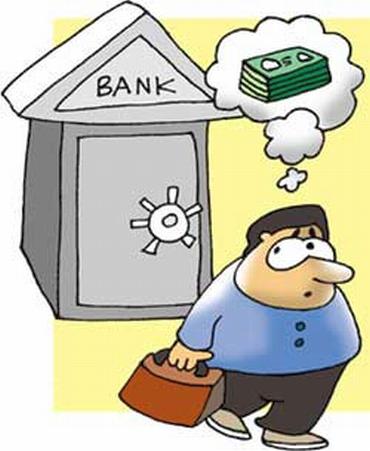 | « Back to article | Print this article |
Home loan pre-payment penalty may be slashed
Home loan borrowers may get some good news soon.
Pre-payment penalties, which are 2 per cent or above of the outstanding loan for most banks at present, may be brought down to 0.5 per cent to 1 per cent.
The Reserve Bank of India is in talks with banks to bring down pre-payment penalty charges and has sought their views on how much the cap should be.
People in the banking industry say a consensus has emerged among lenders that a penalty within 1 per cent of the outstanding loan will be feasible.
Click NEXT to read on . . .
Home loan pre-payment penalty may be slashed
Pre-payment penalty charged by banks has been a contentious issue for quite some time. Most banks charge 2 per cent and above, while some completely waive it.
In most cases, pre-payment penalty is charged if a borrower wants to shift his loan from one bank to another to take advantage of a lower interest rate.
Some banks do not charge pre-payment penalty if a borrower wants to foreclose the home loan from his own resources. However, such cases are negligible in number.
Click NEXT to read on . . .
Home loan pre-payment penalty may be slashed
"The reason why there are no charges if a loan is repaid from own resources is that normally borrowers do not repay in one go. Instead, they accelerate the payment. As long as the cap is reasonable for the customer and protects the interest of the bank, it is acceptable," said Union Bank of India general manager S Govindan.
Though there has been an argument that high pre-payment penalty is not in the spirit of competition, as such a charge is levied to dissuade customers from changing their bank, the Competition Commission of India recently justified these charges.
"There are two reasons why banks charge pre-payment penalty. First, from the asset-liability management perspective, when a bank lends for a longer tenure, it also needs to raise funds accordingly. So, there are liabilities to be paid off over a period of time. This becomes difficult when loans are paid before time. Second, in view of the administration and processing costs, banks may tend to charge less in the initial years in the hope that charging more in future would make up for it," IDBI Bank executive director R K Bansal said.
Click NEXT to read on . . .
Home loan pre-payment penalty may be slashed
The regulator's objection to high charges is with respect to fair treatment to customers.
RBI sources said the issue was referred to the Damodaran Committee on Customer Service for its views. The committee report is in final stages and is expected to be made public soon.
Last year, RBI had set up this panel under M Damodaran, former chairman of the Securities and Exchange Board of India, to look into the issue of services offered by banks to retail and small borrowers, including pensioners, and suggest a mechanism to expedite grievance redressal.





